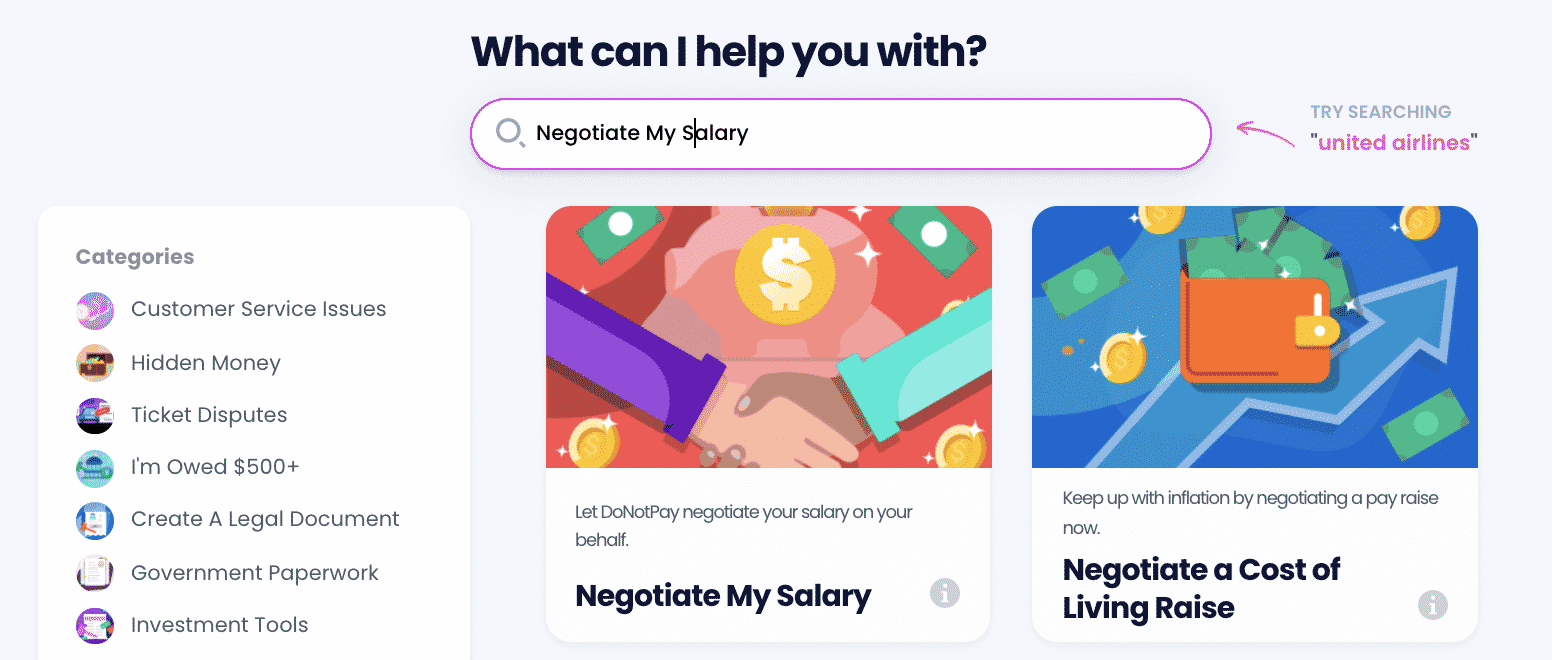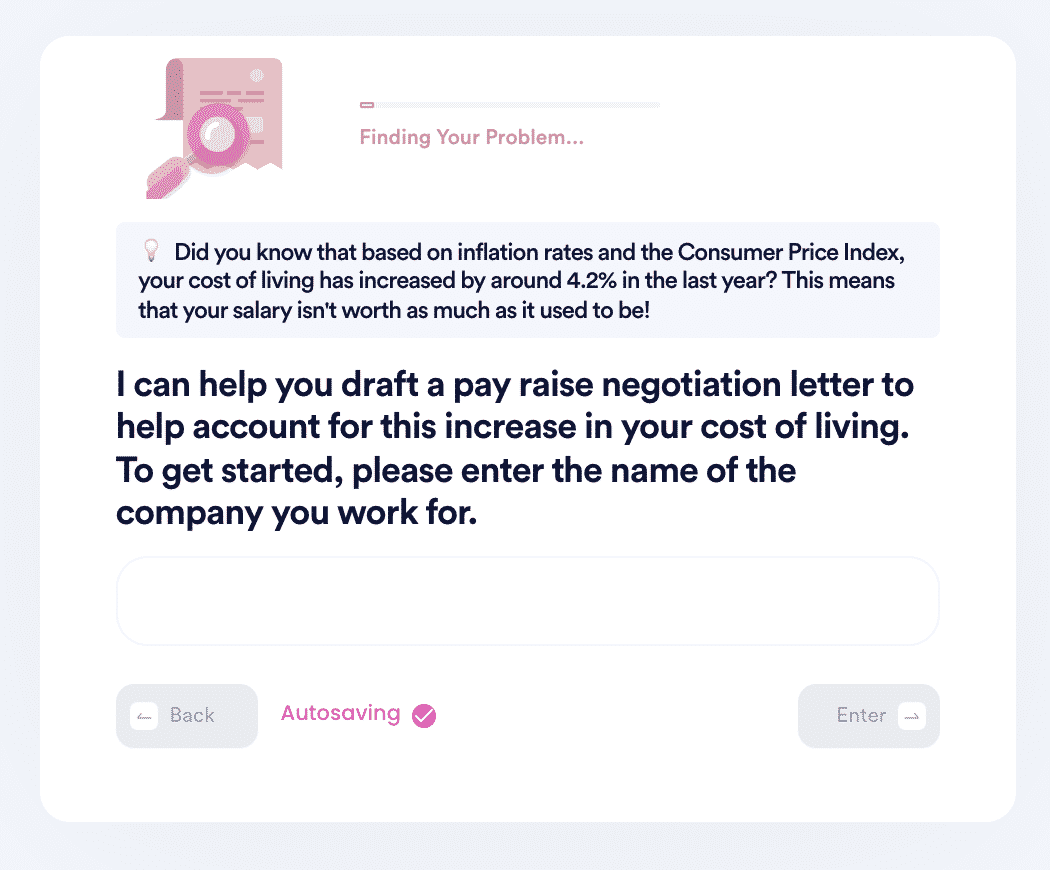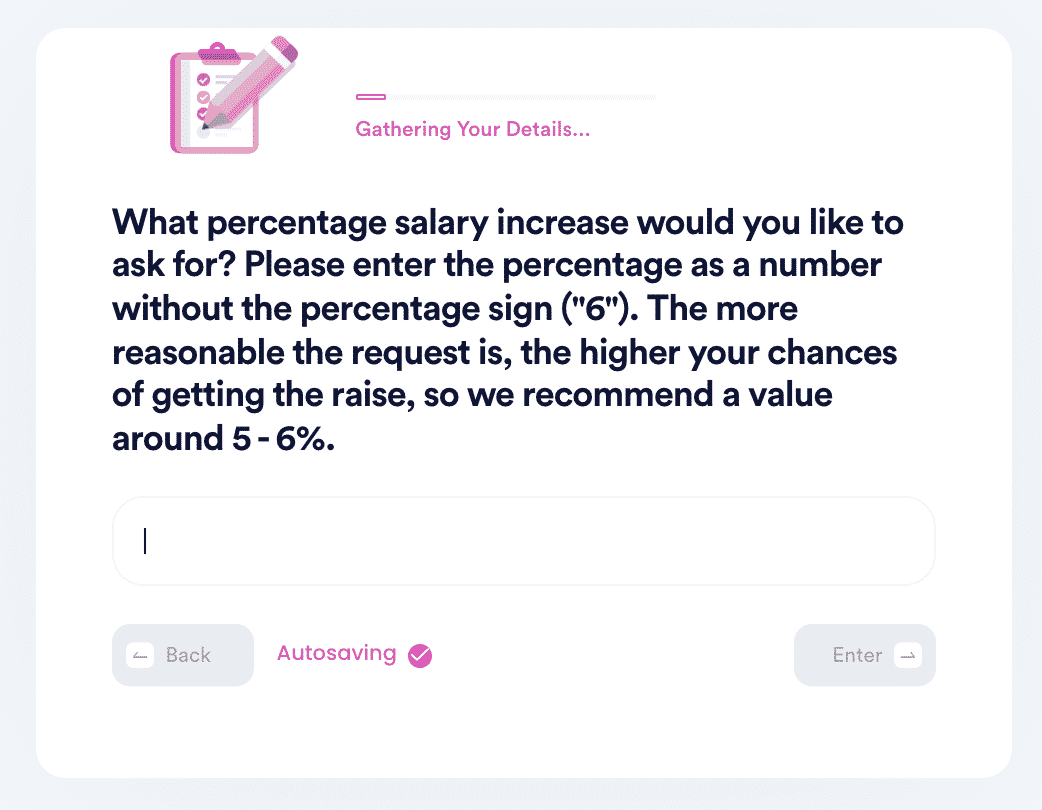How to Handle a Higher Education Salary Negotiation
Intimidation and hesitation are common among professionals considering salary negotiations. The veracity of this fact is evident mostly in academic settings. This hesitation typically doesn't stem from a lack of skills but rather the fear of not knowing how to approach the negotiations. Overcoming this fear in a higher-education environment takes practice, perspective, and preparation.
You need to understand how and when to to avoid getting the wrong offers and tying yourself down to it. If you don't know how and when to handle a higher salary education, DoNotPay can assist. This article explains typical academic salary negotiation processes.
When to Negotiate Higher Education Salaries
Avoid negotiating until you have received the written offer. The search committee chair may call you for the job offer before sending a formal letter. Always remain courteous during such phone conversations, but don't accept the job offer until you have carefully looked over the whole offer. Once you see the full offer, review it to ensure it entails the entire compensation package.
How to Negotiate a Higher Education Salary on Your Own
One of the most important factors to consider before negotiating a salary is the appropriateness of your request for the available university resources. Regardless, here are the common steps to follow when for yourself:
-
Conduct Salary Research
Find out the market rate for the same position at a similar institution or within the same institution. Knowing how much other professors or administrative workers are being paid is important. Understand the variances so you can negotiate a higher pay if need be.
-
Determine a Walk-Away Number
Ensure you have the lowest number you can accept for the job. You may adjust it depending on personal factors and at your discretion.
-
Anchor Up
Simply because you have a walk-away number doesn't mean you should remain there. Ensure you start with the higher end that a college professor of your caliber deserves. Again, it is important to understand the type of institution and its readiness and willingness to provide the resources to match your needs.
-
Use Exact Numbers and Not Ranges
According to Columbia Business School research, asking for a precise salary number, instead of giving ranges is an effective negotiation technique that gives you the upper hand.
Extra Tips for Negotiating Salary
Here are some extra tips for a better chance of higher pay.
| Be backed with hard data | Show evidence of what you are worth. Compile past achievements that justify your raise and how much you further help the institution. |
| Timing | Knowing when to ask is critical when asking for a higher salary. For example, don't ask for a raise when the fiscal year is about to end when budgets are already settled. |
| Be confident | If you know you are worth more than they are offering don't be reluctant to negotiate for higher pay. Advocating for yourself is a sign of confidence that can help you get the salary point you wanted. |
How to Negotiate Higher Education Salary With DoNotPay
Negotiating a higher education salary is important to help you understand current and future expectations. In addition, negotiating your salary before undertaking any higher education, can help you get extra funding for the further education program.
Unfortunately, not many people have adequate experience in negotiating higher education salaries. DoNotPay has experience in negotiating salaries regardless of the circumstances surrounding the negotiation. DoNotPay drafts a compelling negotiation request letter and sends it to the corresponding company. Below are the steps to help you manage a higher salary education.
- Search "negotiate my salary" on DoNotPay.

- Enter the name of your company and the industry you work in, so we can find the right wage statistics for your role.

- Answer a series of questions regarding your qualifications and achievements, relocation expenses, and other job offers if applicable.

- Enter the new base salary you would like to request.

Sign up with DoNotPay to help you negotiate a higher education salary with your boss.
DoNotPay's Services Cut Across Platforms
If you have any other issues revolving around salary negotiations, DoNotPay can assist. Additionally, DoNotPay can help negotiate salaries for virtually any company or employer.
Below is a list of related services that DoNotPay can assist with.
- Learn how to ask for a raise
- Know how much of a raise you should ask for
- Learn how to negotiate salary
- Know when to ask for a raise
- Negotiate salary over the phone
- Negotiate your salary via email
- Get a raise
- Ask for a raise via email
- Know how often you should ask for a raise
Reach out with any issue in mind, and DoNotPay is likely to help with it promptly and effectively.
What Else Can DoNotPay Do?
DoNotPay is the world's first AI Consumer Champion with an extended portfolio and list of services provided. DoNotPay can do more for you than help you negotiate your salary. Some extra services you can expect from DoNotPay include:
- Reducing property taxes
- Canceling services and subscriptions
- Fighting workplace discrimination
- Claiming refunds and chargebacks
However, if you want to negotiate a higher education salary with expert assistance, DoNotPay is the ideal partner. Sign up with DoNotPay to start the higher education salary negotiation process immediately.
 By
By